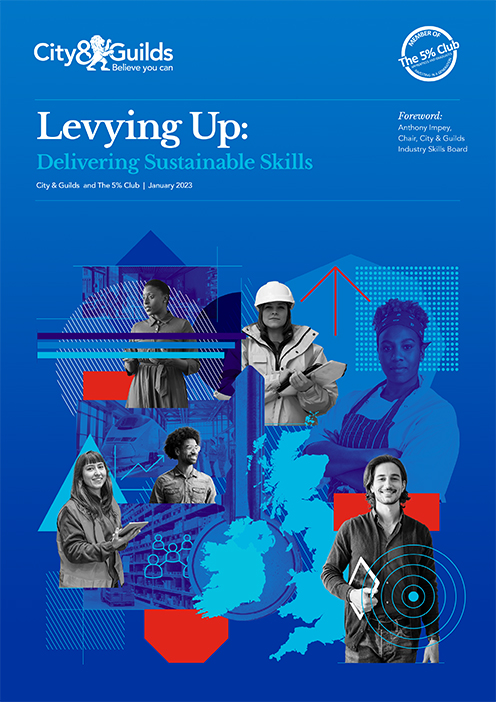The latest figures from the Department for Education covering the 2021/2022 academic year show that apprenticeship starts fell by 13% compared with 2018/2019, with the number successfully completing their apprenticeships down 7%.
Covid no doubt played its part in that, but nevertheless the decrease in apprenticeship uptake and completion has added to the problem of businesses struggling to find skilled talent, while still apparently being reluctant to hire and grow their own.
Training workers could help close the skills gaps, but with the UK predicted to be heading into an economic recession and business costs having increased rapidly, organisations are less able to afford training, creating even more barriers to skills development and workforce entry.
You might think engaging with the Apprenticeship Levy, which subsidises the costs of training, could be a key solution to this problem, but a new survey has found that just 4% of levy-paying employers have used their full levy funding in the past five years, with 94% reporting at least one barrier to accessing it.
The results of the survey are presented in a report called Levying Up: Delivering Sustainable Skills from City & Guilds and the 5% Club.
The 5% Club was founded by Leo Quinn, CEO of Balfour Beatty, in October 2013 to address the issue of poverty arising from high youth unemployment and a shortage of the right skills for the workplaces of today and tomorrow. The 5% relates to the aim of members to have 5% of the workforce in 'earn and learn' positions within five years of joining the Club.
‘Earn and learn’ describes the routes into and within employment (including apprenticeships, sponsored students and graduates on formalised training schemes) that combine study with practical experience, enabling individuals to gain the knowledge and skills required to pursue their chosen occupation.
Levying Up: Delivering Sustainable Skills reports on the results of research among 1,000 human resources (HR) leaders at apprenticeship levy-paying businesses across the country.
It reviews the apprenticeship system and explores ways it could be adapted to meet the needs of employers more effectively, support industry skills requirements and provide opportunities for individuals involved.
One of the ways it could be improved, it concludes, is to scrap the idea of reducing funding for Level 2 apprenticeships like the natural stone industry’s Trailblazer, which is something Michelle Turner, who Chairs the Natural Stone Industry Training Group (NSITG), has consistently called for. It was the NSITG which worked so hard to create the Stone Trailblazer.
The City & Guilds and 5% Club survey found that the apprenticeship levy is currently not working as many employers believe it should.
It shows that apprenticeship levy-paying employers are using an average of just 55.5% of available funds, with 94% reporting at least one barrier to accessing the funds available.
18% of respondents stated that accessing levy funds involves too much bureaucracy and / or administration, with 17% saying they do not have enough time to invest and 19% saying they could not commit to the length of time an apprenticeship takes to complete.
Most HR leaders did not want the levy scrapped, but 43% said they would prefer to shift towards a 50:50 model, whereby half the levy is ring fenced for apprenticeships and the other half is more flexible, allowing businesses to identify the best way to use the money to meet their skills needs.
Levying Up: Delivering Sustainable Skills has the following recommendations:
Introduce a broader skills levy with more flexibility on how employers can spend levy funding.
Cancel plans to reduce Level 2 apprenticeships. Reducing the number of Level 2 apprenticeships excludes a number of young people and people from less advantaged backgrounds from workplace training and opportunities to upskill. As many of these people are not ready for level 3 apprenticeships and not all companies offer level 3 roles as their entry point, if Level 2 apprenticeships were to be reduced, opportunities for these groups would be further restricted.
Introduce modular learning options. Employers would benefit from standardised, levy-funded bitesize learning. An apprenticeship requires a significant commitment of time, both for the employer and the apprentice, which is not always practical. With a modular approach, leaders could pick and choose more compact qualifications and training to meet skills needs and employees could upskill more easily throughout their careers.
Use unspent levy to address labour market shortages. Given the UK’s current labour market shortages, the Department for Education and HM Treasury could work together to ensure that unspent apprenticeship levy funding was spent on programmes designed to reduce skills shortages in the sectors that are most affected.
You can download the 42-page Levying Up: Delivering Sustainable Skills report here or by clicking on the link below.

